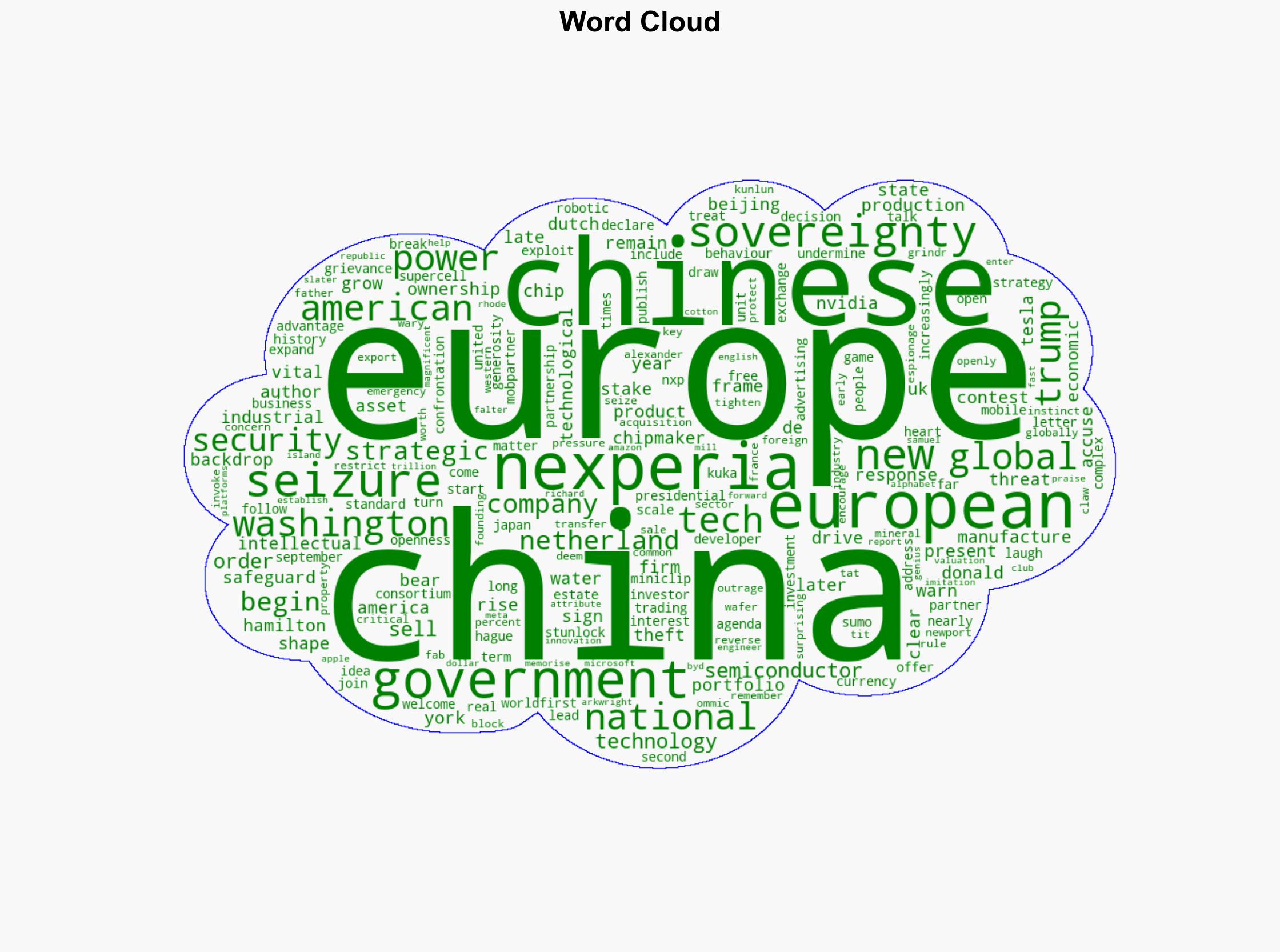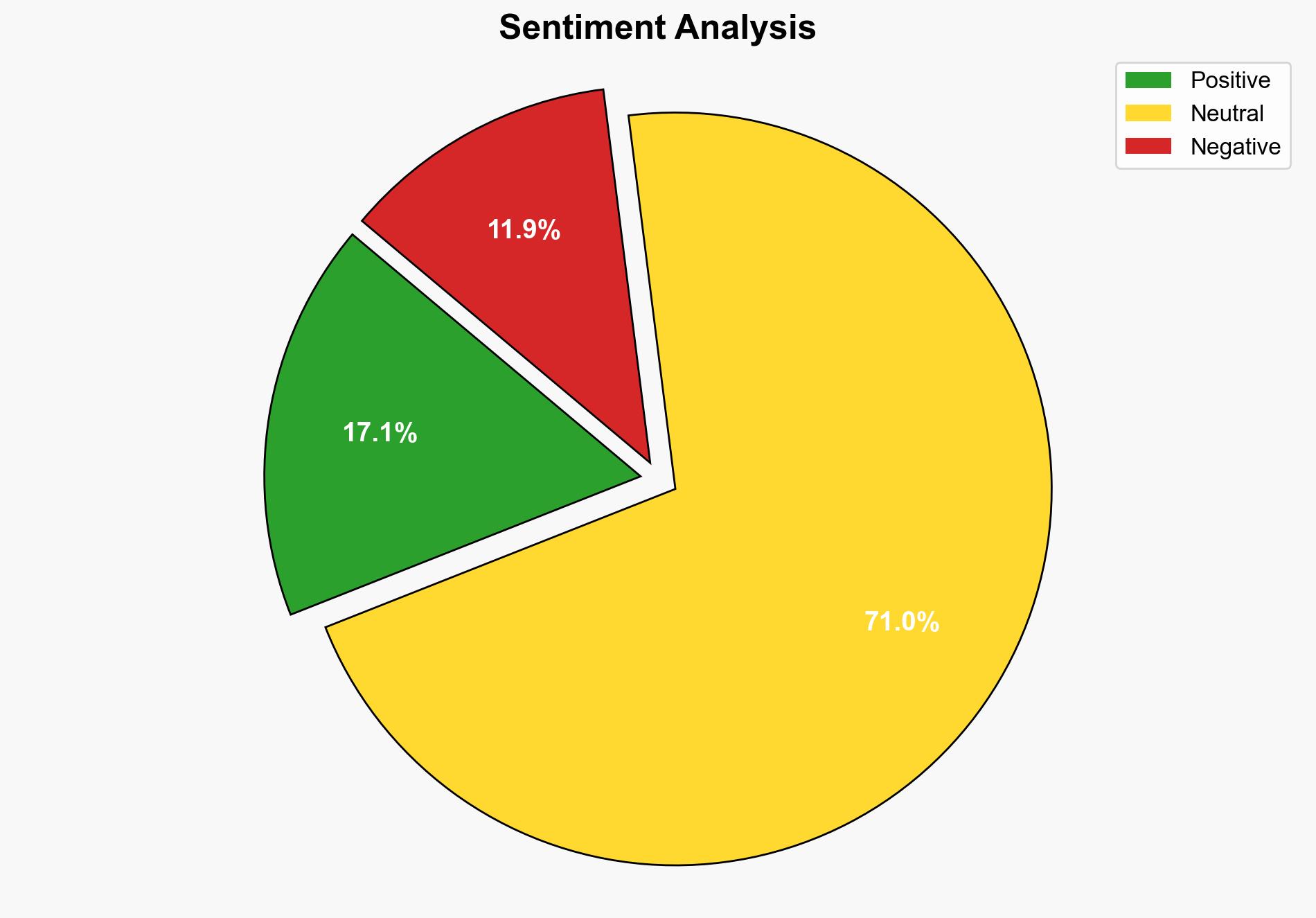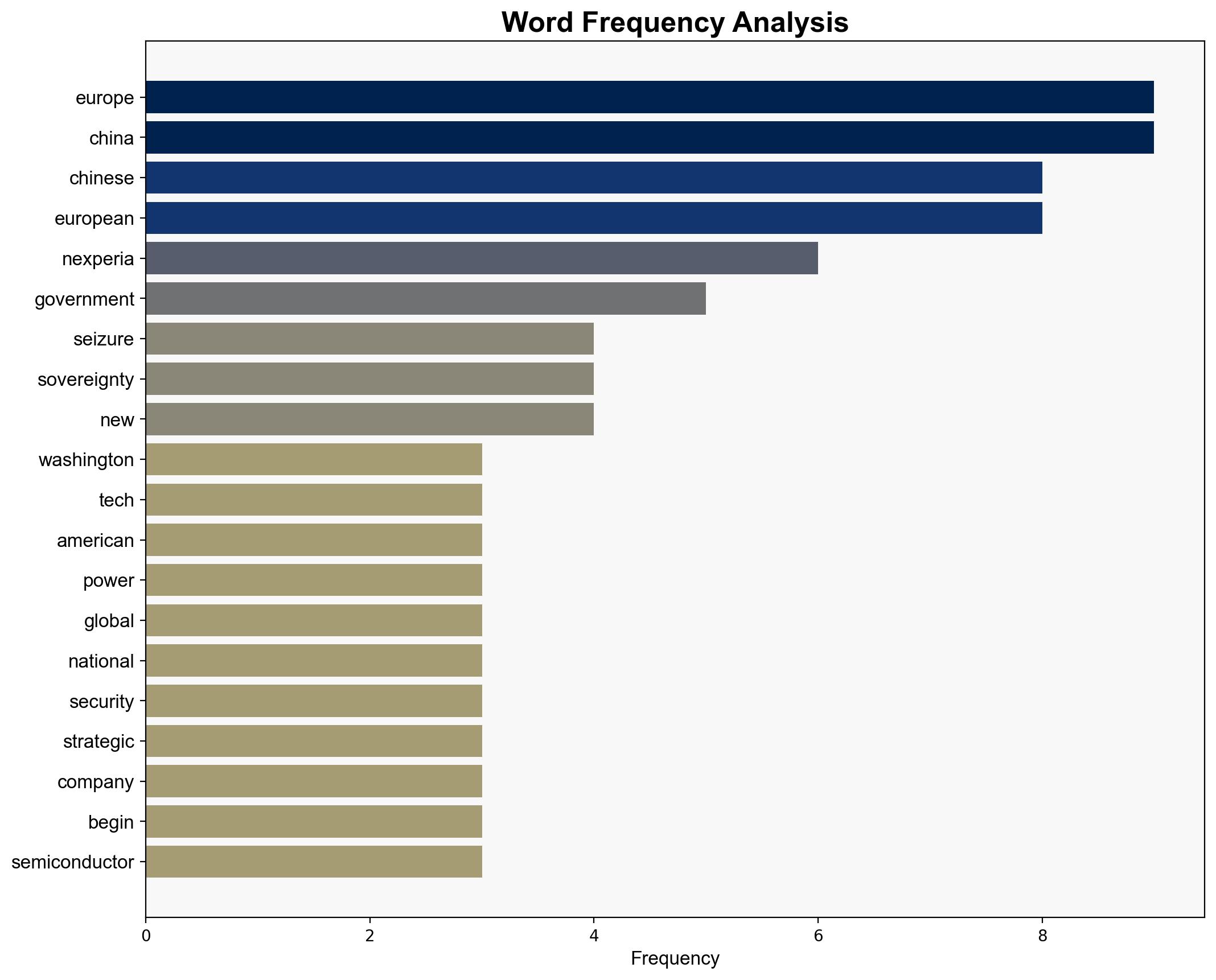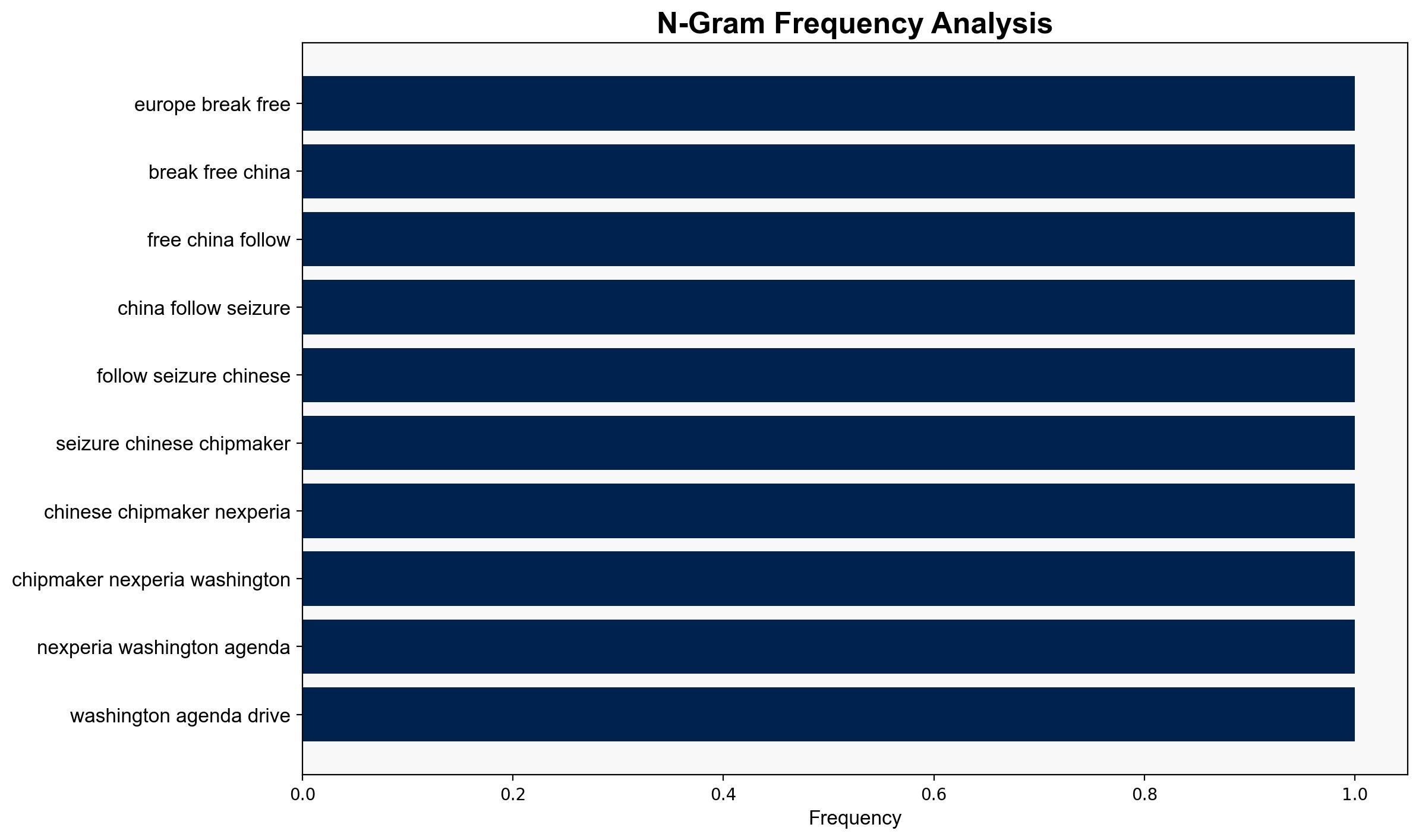Is Europe really breaking free from China or just following the US – Al Jazeera English
Published on: 2025-11-04
Intelligence Report: Is Europe really breaking free from China or just following the US – Al Jazeera English
1. BLUF (Bottom Line Up Front)
Europe’s actions towards Chinese investments, particularly in the tech sector, suggest a strategic alignment with the US rather than a complete break from China. The most supported hypothesis is that Europe is primarily following US policy due to shared security concerns and economic pressures. Confidence Level: Moderate. Recommended Action: Europe should continue to assess its strategic interests independently while balancing US influence and maintaining open channels with China to avoid economic repercussions.
2. Competing Hypotheses
1. **Hypothesis A**: Europe is independently breaking free from China due to genuine concerns over national security and technological sovereignty.
2. **Hypothesis B**: Europe is primarily aligning with US policy against China, driven by economic and political pressure from Washington.
Using the Analysis of Competing Hypotheses (ACH) 2.0, Hypothesis B is better supported. The seizure of Chinese assets and alignment with US policies indicate a reactive stance influenced by US strategy rather than a proactive, independent European policy shift.
3. Key Assumptions and Red Flags
– **Assumptions**:
– Europe perceives Chinese investments as a national security threat.
– US influence on European policy is significant and strategic.
– **Red Flags**:
– Lack of clear European policy statements independently addressing China.
– Potential bias in interpreting US-EU relations as purely strategic without considering economic dependencies.
– **Blind Spots**:
– Underestimation of Europe’s internal political dynamics and economic interests that may diverge from US policies.
4. Implications and Strategic Risks
– **Economic Risks**: Disruption in tech supply chains could impact European industries reliant on Chinese components.
– **Geopolitical Risks**: Increased tension with China may lead to retaliatory measures affecting European exports.
– **Cybersecurity Risks**: Heightened focus on tech sovereignty could lead to increased cyber threats from state actors.
– **Psychological Risks**: Public perception of Europe’s dependency on US policy may affect political stability and EU unity.
5. Recommendations and Outlook
- **Mitigation**: Europe should diversify its tech partnerships to reduce dependency on both US and Chinese technologies.
- **Opportunities**: Strengthen intra-European tech collaborations to build resilience and innovation capacity.
- **Scenario Projections**:
– **Best Case**: Europe successfully balances relations with both the US and China, maintaining economic stability.
– **Worst Case**: Escalation in US-China tensions leads to significant economic fallout for Europe.
– **Most Likely**: Continued alignment with US policy, with sporadic independent actions to safeguard specific interests.
6. Key Individuals and Entities
– Donald Trump: Former US President, influential in shaping US policy towards China.
– Nexperia: Chinese chipmaker at the center of European tech sovereignty concerns.
– Volkswagen, Volvo: European carmakers potentially impacted by disruptions in tech supply chains.
7. Thematic Tags
national security threats, cybersecurity, economic policy, US-EU relations, China-EU relations





